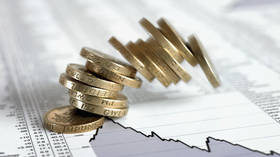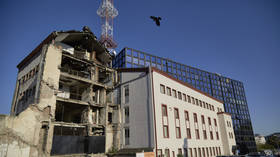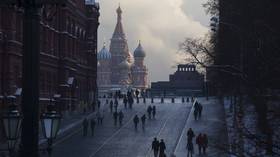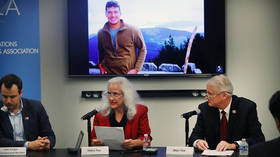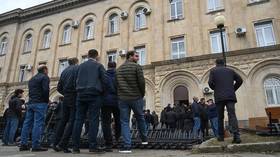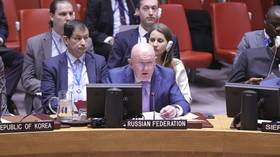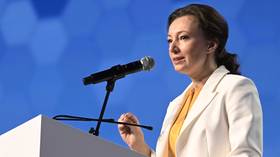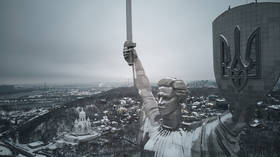Serbia explains refusal to join anti-Russia sanctions
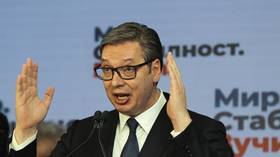
It has cost Serbia a lot to defy the West’s push to impose sanctions on Russia over its military operation in Ukraine, President Aleksandar Vucic said on Sunday.
He believes he would be celebrated by the West and hailed as a hero had Belgrade backed the economic restrictions against Moscow.
“It costs us a lot not to have imposed sanctions on Russia. But if we imposed them, it would cost us our principle of not supporting sanctions against anyone, because we know from our own experience that sanctions are immoral and inefficient,” Vucic told Pink TV.
“They’re saying that I’m a traitor. A traitor? The only one in Europe who hasn’t imposed sanctions on Russia, and from such a small country. Call me whatever you want, but the people have shown what they think [during the election].”
Vucic was re-elected with 58% of the vote earlier this month. He repeatedly said that Belgrade has been under serious pressure and “blackmailing” to join in on the restrictions placed on Russia after it launched a large-scale offensive against Ukraine in late February.
“If I wanted to become the world’s number one hero, it would be enough to say something against Putin, and everyone would give me awards and call me the biggest democrat in the world.”
The president also said that banning oil and gas from Russia would cripple the Serbian economy. “On a day-to-day basis, we must make decisions that benefit the citizens of Serbia.”
Vucic also accused Kiev and an unnamed EU state of a series of false bomb threats to Air Serbia passenger planes. More than a dozen planes were forced to return to Belgrade or Moscow, while other flights had been delayed, and Belgrade's airport was evacuated at least three times over the past several weeks. “Foreign [intelligence] services of two countries are doing that. One is an EU country, and Ukraine is another,” the president said.
The bomb threats began after Serbia refused to back an EU ban on Russian flights. “We are continuing these flights literally out of principle because we want to show that we are a free country and we make our own decisions. Do not decide for us when to cancel flights,” Vucic said.
“Did you cancel your flights when 19 countries were bombing Serbia? At least 30 countries – NATO member states – are now helping one country. No one helped us when we were attacked by the 19 strongest nations,” he added, referring to the 1999 NATO bombing of Yugoslavia.
Russia attacked the neighboring state in late February, following Ukraine's failure to implement the terms of the Minsk agreements, first signed in 2014, and Moscow's eventual recognition of the Donbass republics of Donetsk and Lugansk. The German and French brokered protocols were designed to give the breakaway regions special status within the Ukrainian state.
The Kremlin has since demanded that Ukraine officially declare itself a neutral country that will never join the US-led NATO military bloc. Kiev insists the Russian offensive was completely unprovoked and has denied claims it was planning to retake the two republics by force.
